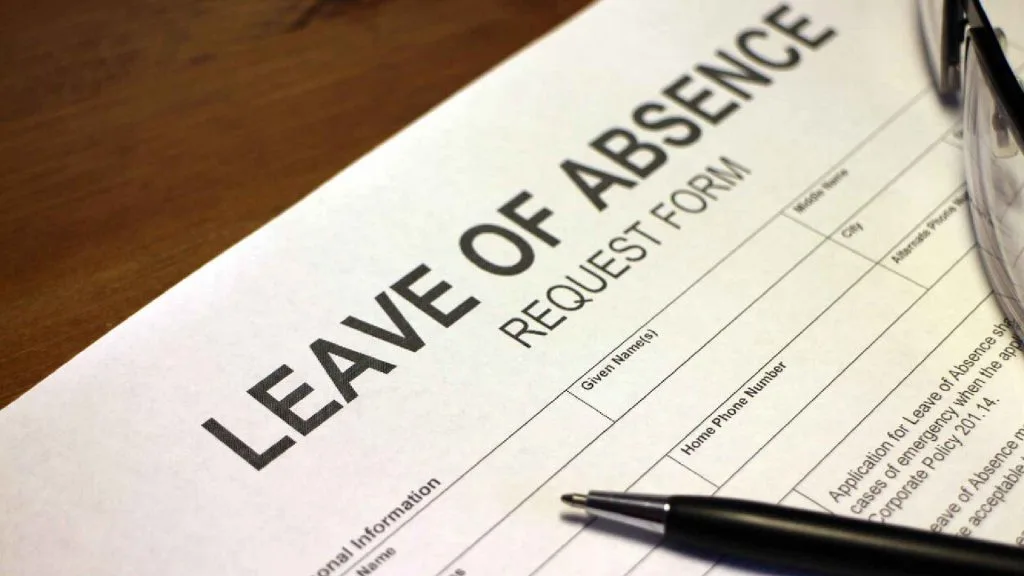In UAE, like anywhere in the world, crises and emergencies can occur at any time. From accidents, illnesses, natural disasters, and other emergency situations, during these difficult times for an employee, it is important to ensure their safety and well-being, as well as maintain a balance between work and personal needs. In this sense, in this context, emergency leave in UAE plays a fundamental role.
In this article, you will learn the key aspects of emergency leave in UAE. Likewise, we will analyze the rights and benefits that this leave offers to employees, the requirements and procedures for obtaining them, as well as the obligations and responsibilities of both employees and employers during these emergency periods.
Emergency Leave in the United Arab Emirates

Emergency leave is a work license granted by the employer to the employee due to current and unforeseeable emergency situations. For its part, it is important to highlight that emergency leave in UAE is an optional decision of the employer since there is no labor law in this country that regulates this situation.
An example for which an employee can request emergency leave in Dubai is due to the illness of a family member and the employee urgently needs to be absent from his or her workplace. Likewise, this is just one of the examples by which an employee can request emergency leave. In this sense, it could happen that a young child of an employee suffers an accident and the employee, like his or her father or mother, must urgently take care of him or her.
In general sense, it will depend on the characteristics of the emergency for the employer to grant it or not. For example, in the case of a small child who suffers an accident and his or her mother or father who is an employee of the company must come to his or her care imminently, it is very unlikely that the employer will refuse to grant an emergency leave.
On the other hand, in the case of a serious illness of a family member that requires a long absence of the employee, the employee will have to reach an agreement with the employer regarding, in particular, the conditions of the duration of the leave.
Now, if the employee is a very efficient employee in the company and the employer wants to keep him or her on the job, in many cases they usually agree to an unpaid leave for a specific time.
Duration of Emergency Leave in UAE
How many days of emergency leave in UAE will depend on the specific emergency. That is, each emergency is different, so the employee’s absence from work varies depending on the severity of the emergency.
For example, in the case of an employee’s young child who suffers an accident, the duration of the emergency leave may only be one or two days. However, it may happen that a very close family member of the employee has a very serious illness that requires the employee’s care, for which the employee must reach an agreement with his or her employer for the time that the employee estimates his or her absence will last.
As mentioned above, if the employer wants to keep the employee in the job, the employer can grant unpaid leave for the time requested by the employee. Likewise, it may happen that the employer refuses to grant emergency leave, so in this situation; the employee will suffer the risk of being fired for repeated absences from the workplace.
Emergency leave, being a figure that is not contemplated in any UAE labor law, is optional for the employer. Therefore, it is recommended that the employee try to reach an agreement with the employer so as not to suffer the risk of losing his or her job.
In short, there is no specific duration for an employer to grant emergency leave to an employee. The duration of this leave will depend on the conditions of the emergency.
How To Apply For Emergency Leaves in UAE?

First of all, it is important to carry out the emergency leave application process very precisely since any error can mean the denial of this leave. Therefore, to request an emergency leave in the UAE, it is advisable to follow these steps:
Inform management in writing:
The first step is to inform the employer about the difficult situation the employee is going through. Likewise, it is recommended to do it in person and if possible to have proof of the emergency.
Now, normally, when an employee speaks directly to the employer, the employer usually verbally gives a positive or negative response. If the employer agrees to grant emergency leave, the next step is to send the request in writing and, if possible, to the company’s human resources department, attaching proof of the emergency if possible.
In this sense, it is important that the employee has proof that his or her absence from the workplace has been permitted by the employer. In this way, he or she will be able to avoid possible surprises related to dismissal processes and, if there is such a process, he or she will have proof that the employer allowed his or her absence from the workplace.
Email Your Request Officially
As part of the formalization of the emergency leave application, it is also advisable to leave a record by email. If possible, the employer should send the same request that was made in writing by email to the employer and the HR department. Now, this will be further support for the employee if the company voluntarily agrees to grant emergency leave.
Be Honest About Your Leave Duration
A large part of the employees in companies in the UAE are foreigners. So on many occasions they will have to return to their country of origin to resolve the emergency. Now, to avoid misunderstandings, it is important that the employee maintain constant communication with his or her employer about the evolution of the emergency situation so that he or she does not think that it is a situation of escape or unjustified absence from the workplace.
Likewise, the employee must respect the time of absence that the employer granted him during the leave. It is important to be honest with the employer. Therefore, it is important to maintain constant contact with the employer. This is of vital importance since the employee will be informed of the situation and in the event that the employee needs an extension of the emergency leave, it is more likely that the employer will extend the leave.
This will generate a climate of greater trust and better understanding between both parties. Likewise, if you need another similar leave in the future, this way it will be more likely that the employer’s response to that new request will be positive due to the honesty shown.
If Your Emergency Leave is Denied in the UAE
It is not mandatory by law to grant UAE emergency leave. In this sense, there are also possibilities that the answer is negative. The most common reason for denial of these requests is previous bad experiences with other employees.
Under these situations, it is important to resort to common sense. If an employee and his or her employer have good relations, the employer will most likely agree to grant this type of leave. But the employee may have a surprise with the employer or by some company policy.
In the event of a refusal, an intelligent solution that the employee can choose is to make use of a leave that is mandatory to grant by UAE labor legislation. For example, the employee can take sick leave or can request an early vacation.
Avail Your Sick Leave
Depending on the emergency, an employee is entitled to sick leave for a number of no more than two days. Likewise, within the UAE’s labor legislation regarding sick leave, establishes that employees can take leave for a maximum period of 3 months due to proven illness.
The first fifteen days of these 90 days of leave, the employee must receive his or her entire salary. Now, for the remaining 75 days he or she will receive half of his or her salary. If the illness lasts more than 3 months, the employee loses the right to receive any remuneration.
Unlike the emergency leave in UAE, the law provides that the employee notifies the human resources department within the first 48 hours after the illness. Therefore, it is advisable that the employee provide a medical report certifying his or her illness.
Likewise, the employee may not be dismissed while the sick leave period lasts. After 90 days of illness have elapsed, the employee must return to his or her job.
Parental Leaves
Paternities leaves in UAE can be maternity leave or paternity leave. Now, maternity leave is for pregnant employees according to the UAE labor legislation. The law provides for a 90-day license distributed as follows.
-
- 45 days before the delivery date and the remaining 45 days will be enjoyed after the delivery date. Also, this permit can be granted to employees who have been working in the company for at least one year.
For its part, in the UAE paternity leave is a work benefit that allows employees who are parents to take paid time off to care for and spend time with their newborn or adopted children.
Fathers employees in the private sector are entitled to receive a paid paternity leave of up to five consecutive days. During these days, parents can take time off work to be with their child and support their partner.
New Year Leave
In the UAE, annual vacations are a labor right in favor of workers. These vacations allow employees to take a break from work and enjoy free time. These are some of the characteristics of this labor right:
-
- Vacation duration:
Workers will be able to have a minimum period of paid annual leave after one year of continuous service. The minimum duration of annual leave is usually 30 calendar days. Although this can vary depending on the work sector and specific company regulations.
-
- Accumulation of vacation days:
Vacation days are cumulative during the year of service and the employee will enjoy them after completing this period continuously. However, vacation accrual and use policy may vary by employer and specific regulations.
-
- Vacation request and approval:
Employees are often responsible for requesting vacation time in advance, following company procedures and policies. For its part, vacation approval will depend on the discretion of the employer and also depend on others factors.
-
- Payment during holidays:
During annual leave, employees will be able to receive their normal salary, including any bonuses or additional employee benefits. If the employer asks the employee to work during his or her vacation, he or she will receive additional payment or compensatory time according to the applicable labor regulations.
Hajj & Umrah Leave
These are permits and regulations necessary to undertake the religious journeys of Hajj and Umrah, which are important Islamic pilgrimages. These licenses guarantee the organization, safety, and well-being of the pilgrims. Next, we will present some details of these pilgrimages:
-
- Hajj:
The Hajj is a mandatory annual pilgrimage for Muslims who have the financial and physical ability to perform it. In this regard, citizens and residents of UAE who wish to participate in the Hajj must obtain a Hajj license.
-
- Umrah:
Umrah is an optional pilgrimage that happens at any time of the year. Pilgrims from UAE who wish to perform Umrah must also obtain an Umrah license before traveling to Mecca and Medina.
Meanwhile, employees who want to perform Hajj or Umrah can receive leave for a maximum of one month. Likewise, the employer does not have the obligation to pay the employee’s salary.
Emergency Leave as Per UAE Law
As we have already mentioned repeatedly, UAE law does not specifically provide for the figure of emergency leave. The deduction of this figure is due to a leave that the employer voluntarily grants to his or her employee so that he can resolve an emergency situation. That is, the employer has no legal obligation to grant emergency leave to its employee.
Now, if the employee’s request for an emergency leave in UAE is affirmative, it is most advisable that this be through a written agreement between the employer and the employee. In this agreement both state the terms and conditions as clearly as possible of this leave.
This will serve as proof to the employee that his absence has been authorized by his employer. Likewise, one of the most important conditions that this agreement must provide is its duration. This must be respected by the employee to avoid work problems due to unjustified absences.
Summary
Emergency leave in UAE plays a vital role in ensuring the protection and well-being of workers during extraordinary situations. Additionally, this agreement with the employer gives employees the time and flexibility necessary to deal with emergencies whether to care for loved ones, protect their own health, or respond to unforeseen circumstances.
On the other hand, it is very important to comply with the requirements and procedures to obtain emergency leave in UAE. As well as the responsibilities of both employees and employers during these exceptional periods. Likewise, in this article, we present examples of emergency situations in which an employee can request this leave.
For its part, it may also happen that the employer denies the employee’s request for emergency leave. In this sense, since this leave is not mandatory by law, the smartest option that the employee can take is to request a leave that is mandatory by law, such as sick leave or a vacation.
However, emergency leave in UAE is an agreement that must be respected and applied in a fair and equitable manner. In this sense, employers have the responsibility to understand and comply with the terms and conditions of this leave. Also, employees must also do so, especially the conditions related to the duration of the absence from the workplace.
Emergency leave in the UAE is a crucial mechanism to safeguard the interests and well-being of workers during crisis situations.

If you want to know more about emergency leave in UAE, go to our Insights section.




